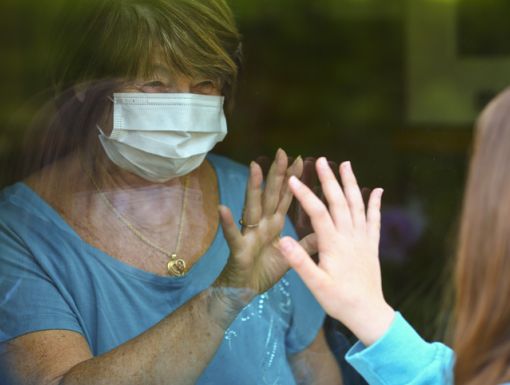
Is Diarrhea a Sign of COVID-19?
We’re still learning a lot about COVID-19, including all of its possible symptoms and lingering effects. By now, you’re no doubt familiar with some of the most common signs, like fever, cough and shortness of breath. A few weeks into the pandemic, we also learned that some people can experience a loss of taste or smell.
But COVID-19 doesn’t just affect your respiratory system. It can also affect your gastrointestinal (GI) system. And that means that there are GI symptoms to know and watch out for. These include:
- Diarrhea
- Nausea
- Vomiting
These symptoms can sometimes begin before respiratory symptoms start, but not always. So far, research shows that GI symptoms aren’t inevitable if you are diagnosed with COVID-19. In one study, about 60% of those diagnosed with the coronavirus experienced at least one GI symptom.
How Do You Know if Your GI Symptom Is Due to the Coronavirus?
COVID-19 symptoms can surface anywhere between two and 14 days after exposure. If you’ve been in contact with someone who’s been diagnosed and you start to experience GI symptoms, including diarrhea, contact your doctor via phone or a virtual visit. They’ll ask you a series of questions to rule out other possibilities, like food poisoning or other causes of gastrointestinal problems.
Diarrhea is defined as having loose bowel movements three or more times in one day, and it usually lasts one or two days. If it doesn’t go away after that, contact your physician.
According to the CDC, symptoms of COVID-19 to watch out for include:
- Fever or chills
- Cough
- Shortness of breath or difficulty breathing
- Fatigue
- Muscle or body aches
- Headache
- New loss of taste or smell
- Sore throat
- Congestion or runny nose
- Nausea or vomiting
- Diarrhea
All of these symptoms can range from mild to severe.
Remember, you can protect yourself and others from COVID-19 by wearing a mask, social distancing, washing or sanitizing your hands frequently and not touching your face.
The information in this blog post is accurate at the time of publication. However, as the situation surrounding COVID-19 continues to change, it's possible that information has changed since being published. While Ochsner Health is trying to keep our blog posts as up-to-date as possible, we also encourage readers to stay informed on news and recommendations by using the CDC website.
Learn the latest about COVID-19.


